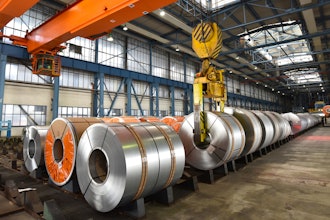
Every firm has two distinct yet equally important roles: the executives and the experts. These roles are very different in many respects, but primarily in their scope of authority and the expertise required to be successful.
Product strategy, sometimes called the roadmap, is simply the goal of the product line over the next two to three years. Any longer than three years is folly due to the fast-changing environment in which most industries exist.
The product manager is responsible for developing the product line strategy as a result of her product expertise and knowledge on associated markets. Also, she fields frequent calls from customers and sales personnel; is closest to the technology (aside from the R&D department), and has the broadest and deepest view of the product within the firm.
The executive level, or C-suite, employs these experts, product managers in this case, to know the details, develop product roadmaps, and then execute on the individual plans that will create the results.
The executive level is designed to manage the higher level functions of the business; guide it through the ever-changing economy; and make resources available to the experts to execute on the functional areas of the business.
Involving executives in the minute details of a product line is counterproductive; the product manager is sidelined while explaining the product line details to the executives, the executives are sidelined while learning these details and making the decisions; and the business suffers because those responsible for running these two key areas are distracted.
The following shows how to best divide product line management responsibilites.
Experts
Product managers are the experts. They know more about the overall product and market than anyone else in the company and should be orchestrating and/or consulting on all issues dealing with the respective product, the business performance, and the related markets. They are the masters of their domain, because they:
- Are close to the customers and the products
- Know the technology better than all, but the R&D department.
- Know the competitive landscape.
- Know the suppliers and the supply chain.
The best product managers master the skill of simultaneously considering the strategic and tactical aspects of their products and markets.
Executives
The executive level is the guiding force of the company, responsible for the overall functioning of the organizations, setting company strategy, and enabling staff to make progress on the initiatives assigned to them. The executives are responsible for creating, or should be consulted on changes to, the following:
- Creation and management of anything affecting corporate strategy.
- Business models.
- Channel strategy or geographical expansion/contraction decisions.
- Organizational structure to support overall goals.
Executives and product experts have different, yet equally essential roles within the design firm. Neither can succeed without the other; neither group is equipped to conduct the other’s role; and major problems arise when groups attempt to do so.
Both of these groups, when well-staffed with high-performers, are key to the growth of company revenue and profit, and to the overall improvement of the company.
Doug Ringer is an expert in improving individual and organizational performance and the author of “The Product Rocket: Launching New Products to Out-of-this-World Success.” Doug has held global roles in marketing, R&D, and manufacturing at General Electric, Ericsson, and Honeywell. Follow his work at www.dougringer.com and Twitter.






















